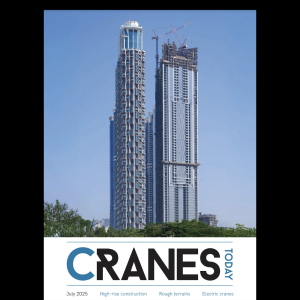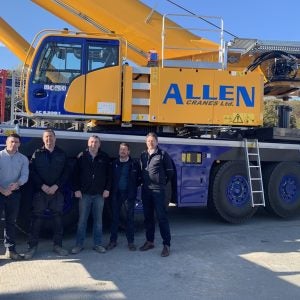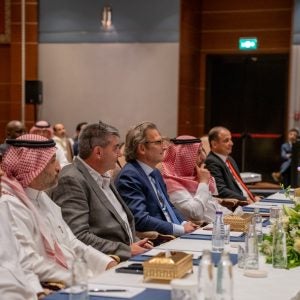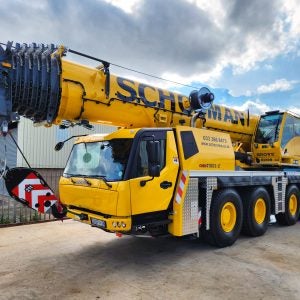Last year saw Muhibbah Engineering embark on step three of its worldwide expansion plan in the crane industry by buying the Danish manufacturer Krøll for $2.6m.
Step one was the acquisition of Favelle Favco in 1995. Step two was the following year’s purchase of the Manitex pedestal crane line, coupled with the deal to build significant components for West-Manitowoc crawlers in South East Asia.
Until the Krøll deal, Muhibbah’s tower crane concerns concentrated on the design, manufacture and supply of the Australian-made Favelle Favco diesel-hydraulic and electric-hydraulic luffing boom tower cranes. The Krøll acquisition added a line of all-electric hammerhead cranes, including pedestal, ship, wharf and special purpose cranes.
It would be reasonable to expect that the two crane manufacturing companies would be merged, now that they are under single ownership. However, Muhibbah has no plans along these lines, as Tee Yin Tiong, the 46-year-old deputy managing director of Favelle Favco, explains “We will consider integration only for the purpose of optimum productivity and efficient use of resources sharing. However, we do not plans to integrate at this moment.
“The two companies have different market sectors, other than construction tower cranes which they cross, and the product mix is complementary.” But that is not to say there has been no activity since the acquisitions.
“Since Favelle Favco’s acquisition,” Tee says, “we have started our global network expansion programme, beginning with setting up an office and manufacturing facility ion the USA.” The USA facility is in Port of Harlingen, Texas. This brings to four the Favelle Favco plants: two in Malaysia, one in the USA and one in Sydney, Australia.
Tee continues: “The process of consolidation and rationalisation of Krøll and Favelle Favco designs is in progress. We expect Krøll to continue playing an active role in the European market.” The first fruits of the Favelle Favco acquisition are now visible: the Malaysian-built TD133 tower crane.
“This is a totally new design targeted at the conventional market, for standard construction use. The Favelle Favco range is targeted for high speed, high load use, while the TD133 is for high speed but low load general use.
“This particular model competes with the other general construction tower cranes available in the market. Since its introduction to the market we have received encouraging support throughout the region.” Unsurprisingly, Muhibbah and Favelle Favco have been hit by currency crisis and devaluation which sparked last year. Muhibbah’s share price, along with pretty much every other company’s on the Kuala Lumpur Stock Exchange, collapsed, losing about two thirds of its value in a matter of weeks.
But, says Tee: “The share price has no effect on our crane business. We are not exposed to the share market.” He also claims that the impact of the currency crisis is minimal, “as we are in the international business. The risk of currency somehow evens out”.
But expansion plans have been slowed down and spread over a longer period, and sales have been hit as construction projects have been put on hold.
Sales of the TD133 have suffered. “Before the slowdown, we had 22 units in our order book. Most of these have been cancelled and currently seven units are now being used in the market in the six months since we started production on the TD133.” Sales of the West-Manitowoc 222 construction crawler crane have also slowed due to the currency crisis, Tee says. “Moreover, the trend is towards reconditioned and used crawler cranes.
“However, we believe that when we start manufacturing locally in Malaysia, the effectiveness will increase.” The time is right, generally, for heavy machinery production facilities in South East Asia, Tee believes.
But Tee sees positive aspects too. Because Muhibbah has international subsidiaries, it brings the stronger in foreign currencies, says Tee, an engineer who has been with Muhibbah for 17 years.
And though construction sales in Asia have certainly slowed, “overall we are not too affected as we also have cranes in other sectors,” he says. Favelle Favco sold 16 pedestal cranes last year, including four to Hyundai, three to Petronas Carigali and three to Foramer.
“We are, however, cautious about 1998 and 1999, and are looking at penetrating new markets, such as the Americas, Africa and the Eastern Block to protect ourselves from the economy affecting certain regions.






